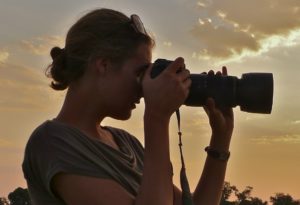Here are seven spectacular Kenyan properties (in no particular order) for experiencing genuine culture.
1. JAN’S CAMP, MASAI MARA
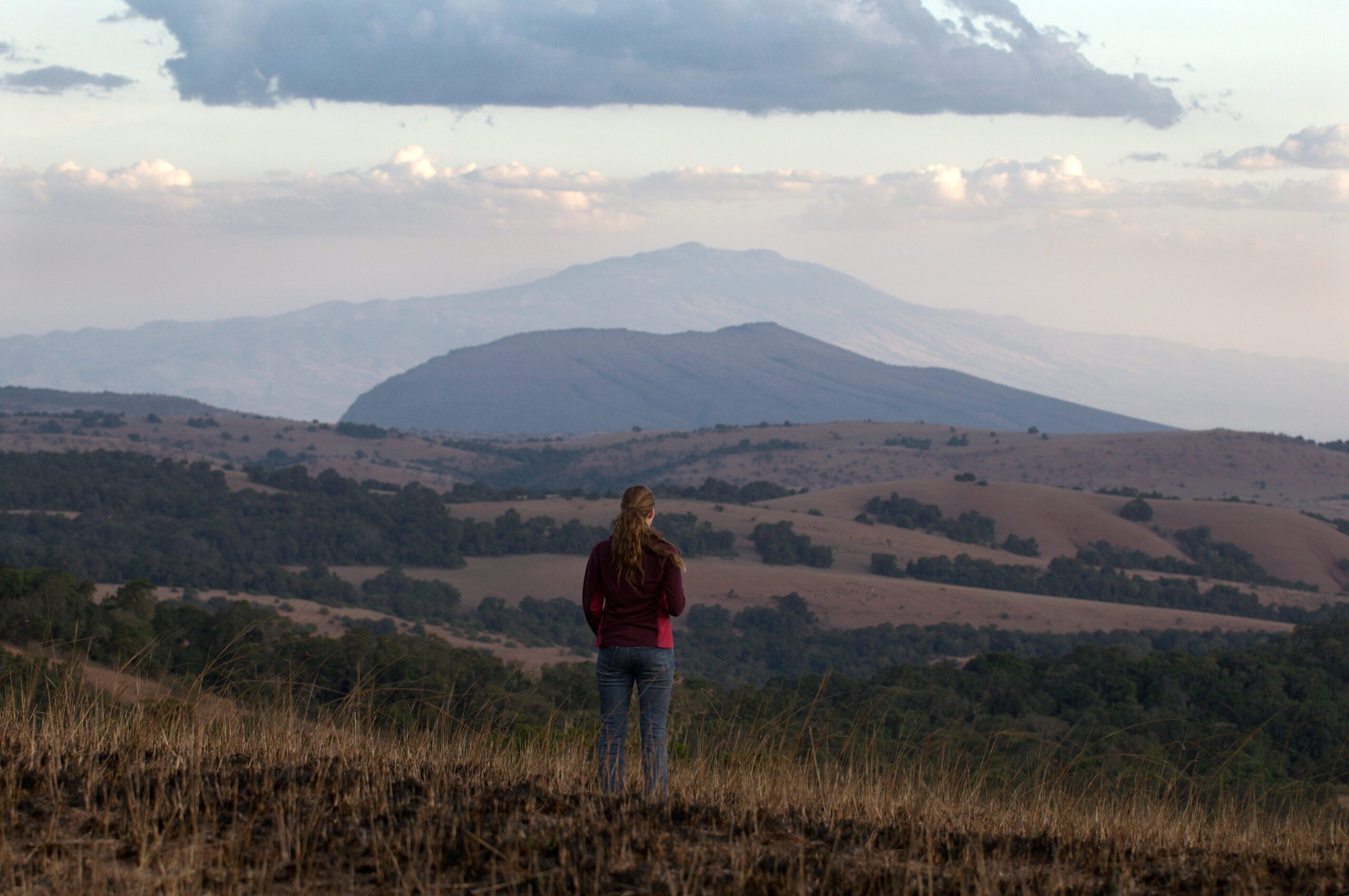
If you’re ready to leave your comfort zone, Jan’s Camp is for you. You’ll spend five, six, or 12 days (for the truly rugged) walking and hiking through the Loita Hills, where you’ll explore the remote and beautiful areas of the Maasai homeland, passing local villages, lush forests, and hidden waterfalls. Don’t worry about getting lost: You’ll have 15 Maasai walking guides leading the way (they may even introduce you to some of their friends). At the end of each trek, enjoy a good night’s rest in cozy beds. Our favorite part: You probably won’t run into any other tourists on this one-of-a-kind adventure.
RELATED: 9 Nights Walking With Kenya’s Maasai
2. ELEPHANT WATCH CAMP, SAMBURU NATIONAL RESERVE
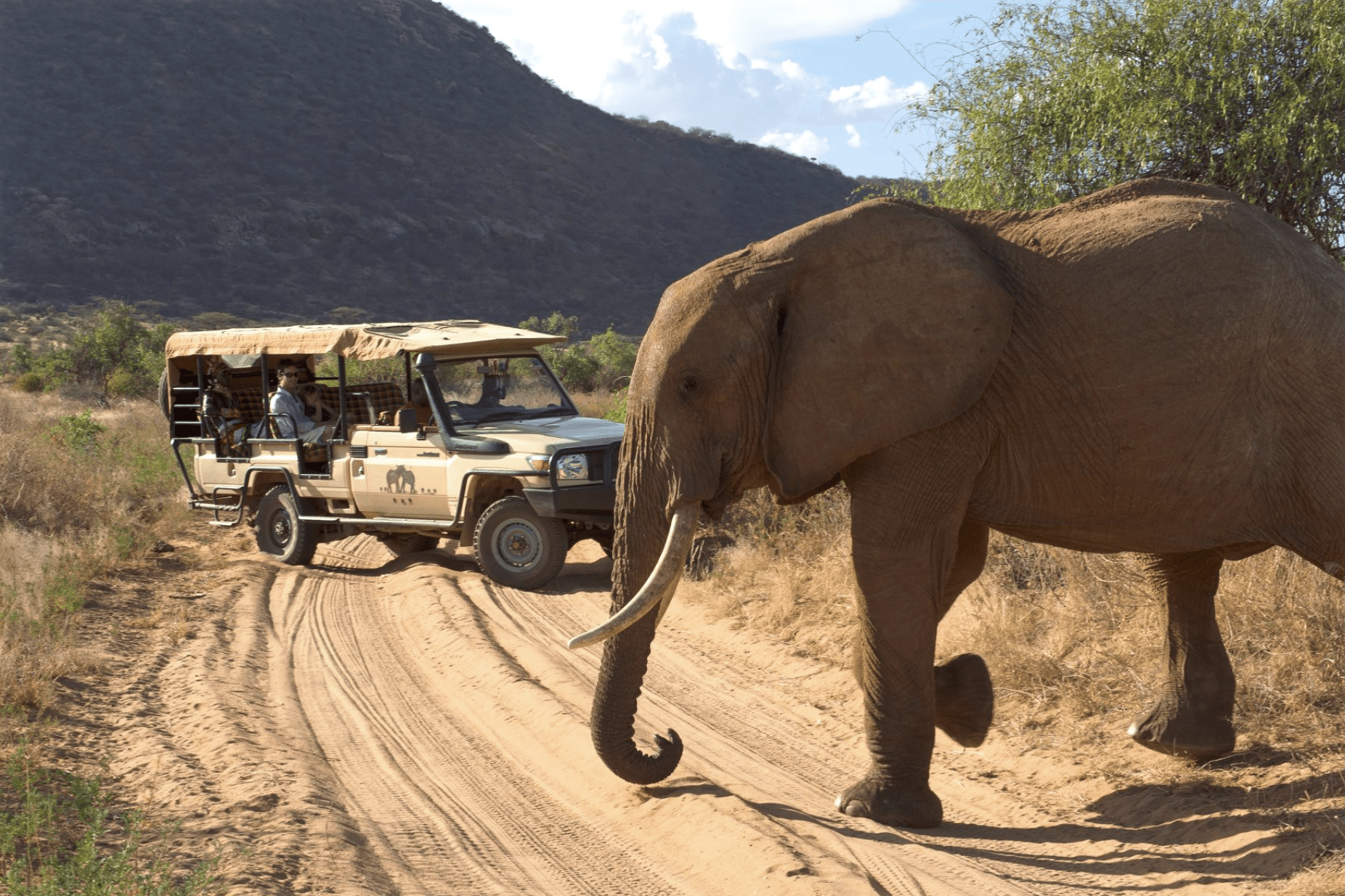
Well known for its close ties to Save the Elephants, Elephant Watch Camp is a pioneer in elephant conservation in Kenya’s Samburu National Reserve. Not only is the camp stalwart in its environmental responsibilities, but also, almost all of its team (particularly its guides) come from the Samburu villages bordering the reserve. That means guests get to explore the region and its wildlife with someone who grew up here, and, therefore, knows all the ins and outs. Every experience we’ve had here—from classic game drives to epic treks up the sacred Ol Olokwe mountain—has helped us learn more about the Samburu people and develop an immersive bond, even when English was limited. This camp proves that great hospitality can happen despite language barriers.
3. SARUNI SAMBURU & MARA CAMPS, SAMBURU & MASAI MARA NATIONAL RESERVES
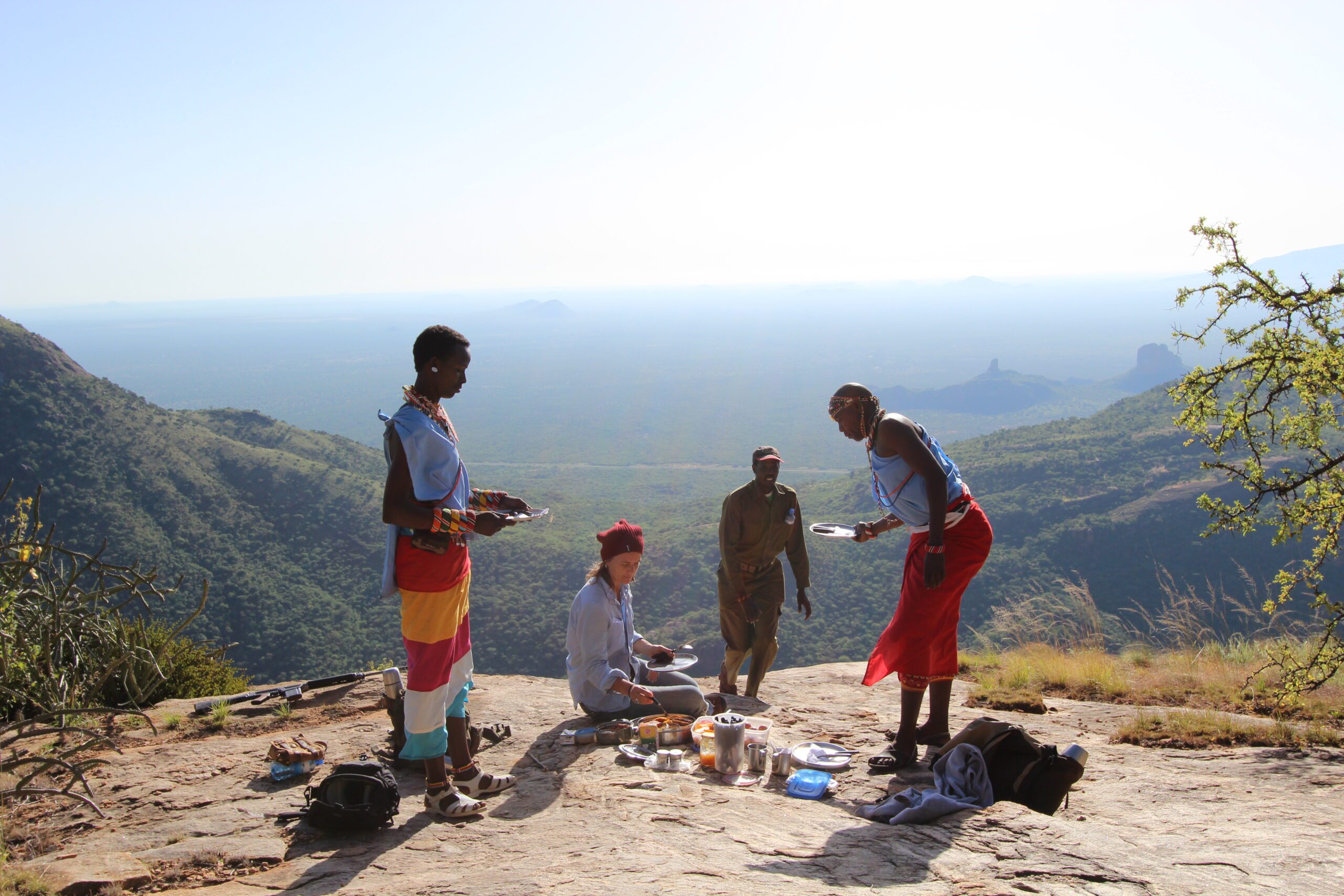
These are technically two camps, but they’re both created and run by Saruni in some of Kenya’s top locations. Both lodges are designed into and around their natural environs: the sloping valley hills looking onto the Mara plains and the rugged, rocky landscapes of Samburu-land. Like some other culture-focused places to stay in Kenya, Saruni emphasizes local Maasai and Samburu guiding, sharing their passion for both the people and the land. We suggest taking a stroll to nearby archaeological sites to see Samburu cave rock art at Saruni Samburu.
Unique to Saruni, however, is the Warrior’s Academy, an interactive safari experience we love especially for kids and teens. Guided by your ‘Moran’, or warrior, you can spend up to three days learning folklore and traditional bush skills, including wildlife tracking. This is more than a vacation; you’ll gain a richer perspective on what it means to keep tradition alive in a rapidly Westernizing world.
4. OL MALO, LAIKIPIA
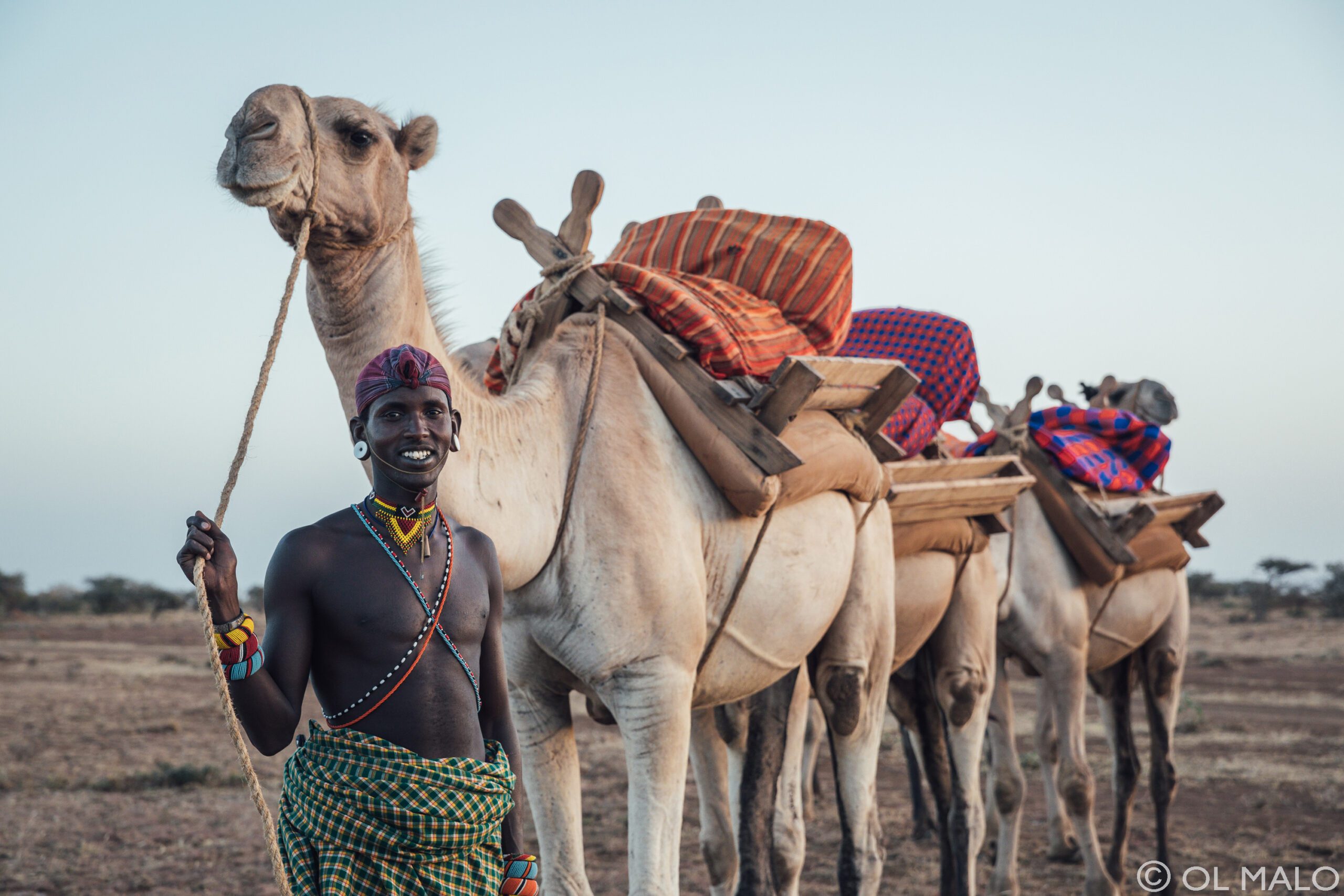
An intimate, family-owned-and-operated property where you call all the shots, Ol Malo is a quirky favorite of ours for so many reasons. The top being its outstanding, authentic Samburu experiences. You’ll see traditional song and dances performed by locals, but the goal isn’t to make a tourist buck. Think of it as a special peek into daily life rather than an intrusion upon it. We also love swimming in the infinity pool, seeing how to make glassware and dishes, and cooking up our own traditional—and delicious—Samburu meals with fresh goat meat or plant stews. Adventurous eaters with stomachs of steel may choose to sample fresh milk and animal blood from a gourd, but we recommend something a little more palatable for most travelers.
RELATED: Find out why EJ-founder Elizabeth loves staying at Ol Malo
5. LEWA WILDERNESS, LEWA WILDLIFE CONSERVANCY
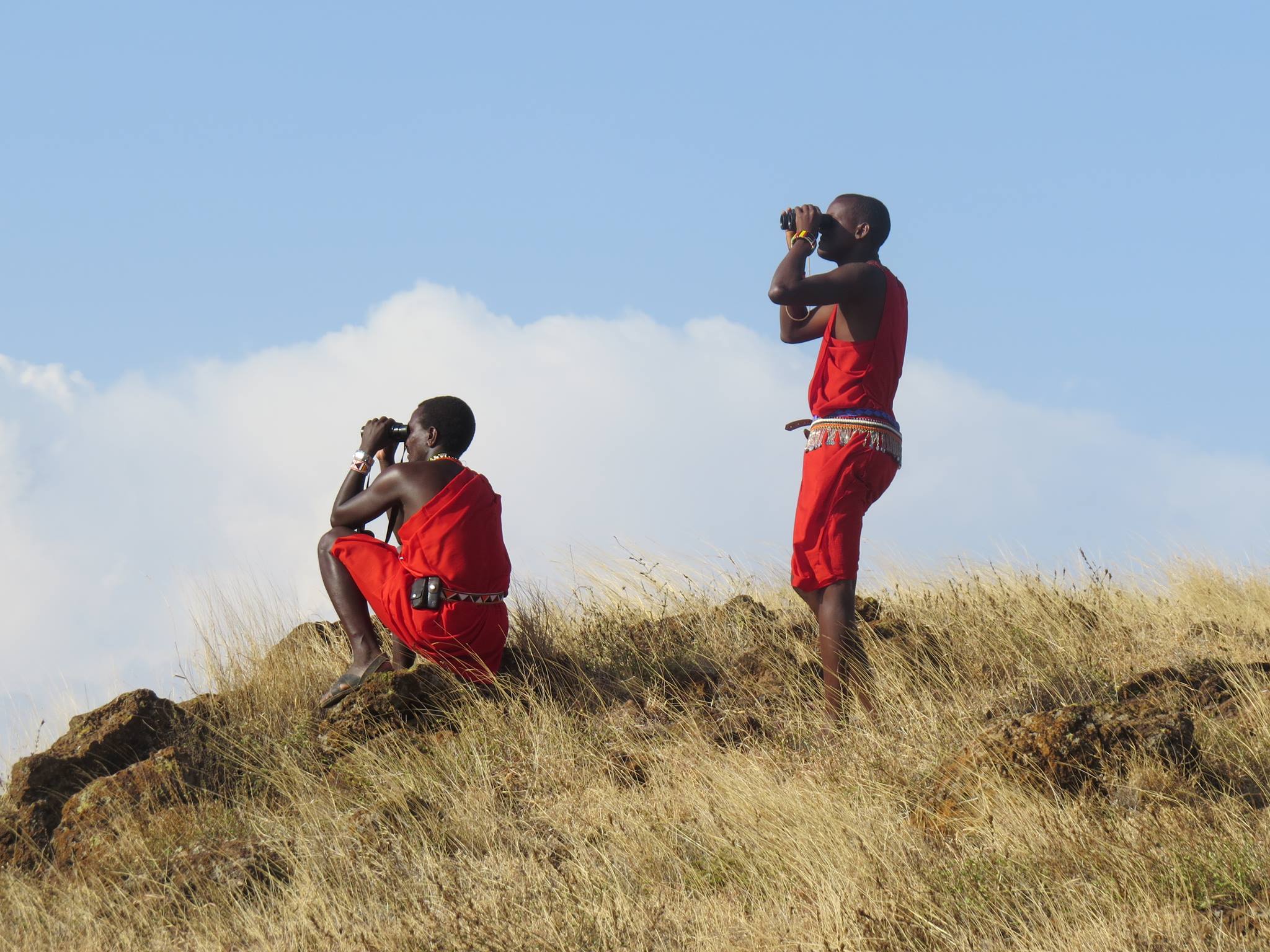
Lewa Wilderness and the greater Lewa Conservancy is a benchmark conservation success story, and that’s thanks, in part, to its inclusivity of locals. Many of Lewa’s guides come directly from surrounding communities, like the Maasai village of Il Ngwesi or Samburu homesteads, teaching guests to appreciate the beautiful rolling hills of the area the way a local might. Lewa also trains community members through Lewa Crafts Furniture and Kifuma Weaving projects, which guests can visit to admire the fine craftsmanship. Plus, as a guest of the conservancy at large, you have access to additional excursions, like visits to prehistoric archeological sites, plus schools and neighborhood projects. Bottom line: You get a behind-the-scenes look at the conservancy operations while it’s happening.
6. SARARA CAMP, MATTHEWS RANGE
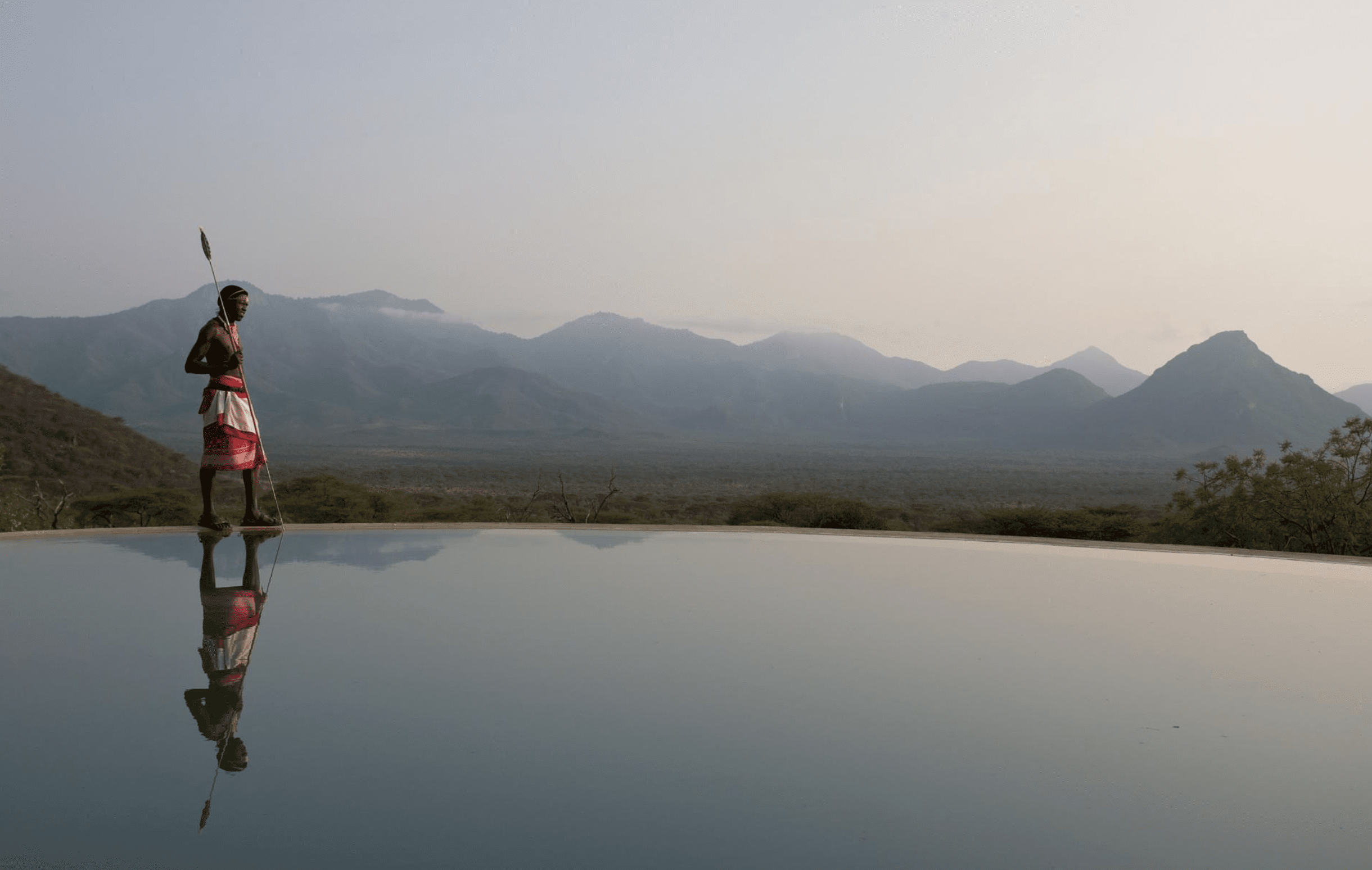
Sarara is community-run through and through, and considered among the most lauded conservation initiatives of its kind in Africa. Working closely with the Namunyak community, it’s clear that every staff member and Samburu guide has a veritable interest in the success of this property. Their energy and warmth transforms this intimate camp into an experience more akin to a private homestay, dedicated to providing thoughtful, personalized services.
In or out of camp, Sarara truly is all about forging connections with people. We loved beading with the Sarara Sabache Women’s Group, which fostered honest, engaged conversation between the women and Sarara’s guests. Spending time with the Ilkonono Blacksmiths, the “singing wells,” was another standout for us. The singing wells are part of a special tradition in which Samburu warriors bring their cattle to the dry riverbed and croon aloud as they dig wells for drinking water. Every song is distinct, calling each warrior’s cattle to his particular well. It’s amazing to hear in person.
Plan Your Visit
Call or email us today to begin planning your cultural Kenyan safari.
